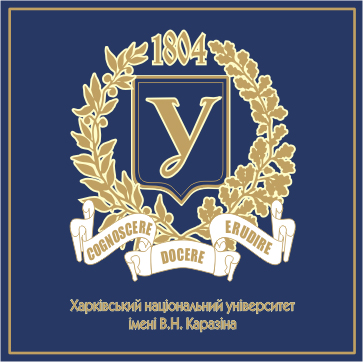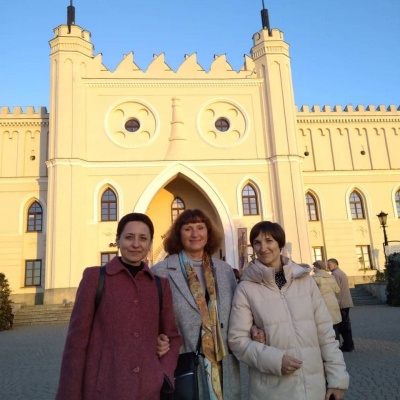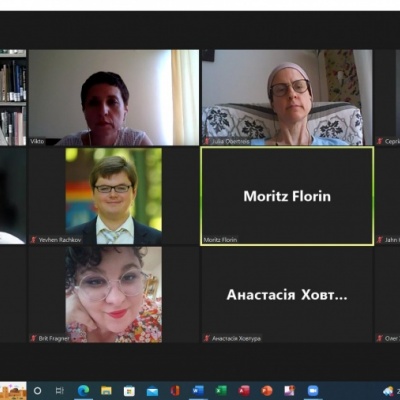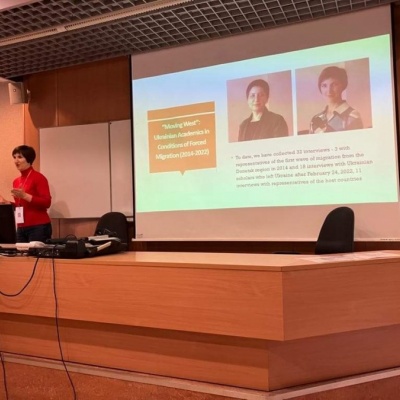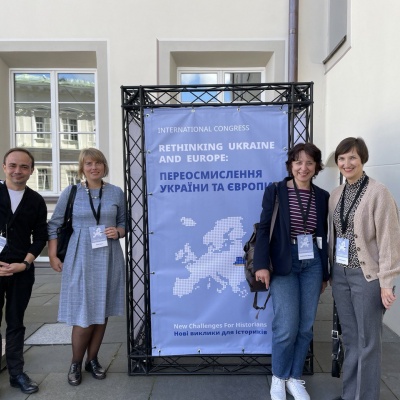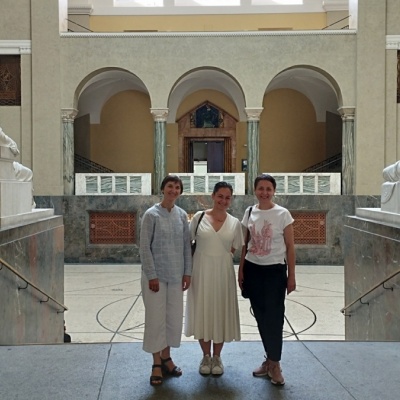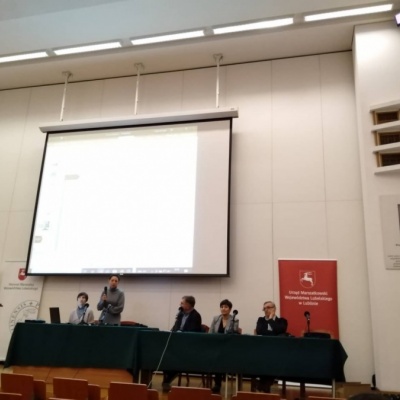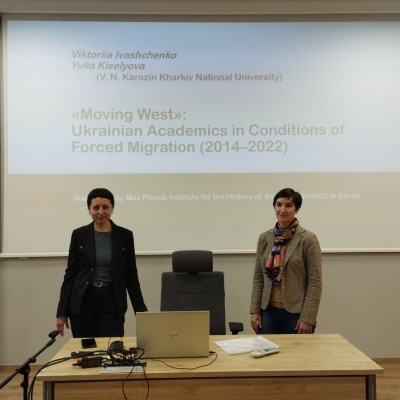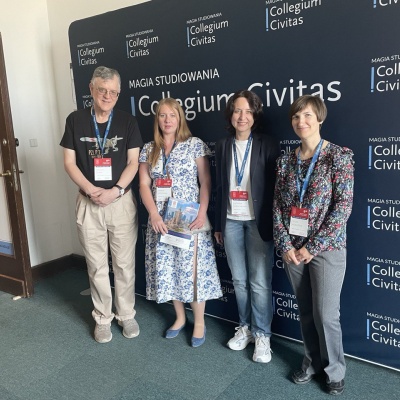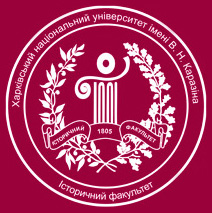
Projects
“Moving West”: Ukrainian Academics in Conditions of Forced Migration (2014–2024)
The project deals with the forced migration of academics from areas of military conflict in Ukraine. The first wave of this movement began in 2014 from the region of Donbas – this was internal migration, as educational institutions and a proportion of their faculty relocated to central and western Ukraine. The second wave began after 24 February 2022 and spilled across the western border into other European countries.
The objective of the project. We aim to study Ukrainian academics’ changing strategies of survival and career-building in extreme circumstances and their understanding of their own role in the context of various life choices and challenges posed by the war. We also endeavor to assess the degree of solidarity and cooperation between Ukrainians and other Europeans within the academic community. We are interested in the motivation and level of involvement of academics from the host countries in their interactions with forced migrants.
The methodology of the project involves collection and analysis of oral history interviews with the faculty and staff of Ukraine’s academic institutions and museums, as well as interviews with representatives of the European academic community who directly help Ukrainian migrants. Special attention will be paid to Donbas academics, whose experience will shed light on the dynamics of the processes under study. At the same time, interviews with scholars from other regions of Ukraine will expand the comparative dimension of the project. In addition, we will collect interviews with those representatives of the European academic community who are directly involved in the accommodation of academic migrants, thus contributing to the preservation of the scientific potential of Ukraine’s higher education and research.
In the first phase (2022 - mid-2023), the project authors focused on analyzing the "expectations" and first “collisions with reality” on the part of both Ukrainian migrant scientists and their colleagues from European research institutions involved in assisting forced migrants. At the second stage (starting in the second half of 2023), the main focus is on the study of the behavioral strategies chosen by Ukrainian scientists (return to their homeland, isolation, integration into the cultural, academic, and social space of the host countries, further emigration) in the historical perspective. At this stage, it is also planned to hold focus-group discussions with project respondents on the preliminary results of the study presented in academic articles on the formation and transformation of identities of Ukrainian academics in the context of forced migration.
Project is implemented with the support of
- Max Plank Institute for the History of Science (10.2022–03.2023)
- “Documenting Ukrain” Institute for Human Sciences (12.2023–05.2024)
- Leibniz Institute for East and Southeast European Studies, Regensburg, Germany (02.2024) visiting fellowship (Yulia Kiselyova)
Publishing the article:
- Ivashchenko, V. Kiselyova, Y. «I Am Stronger Now, I Know I Can Do So Much»: Women Academics in Conditions of Forced Migration During the Russian-Ukrainian War. L'Homme. Europäische für Feministische Geschichtswissenschaft. 2024. № 1. P. 99–118. https://www.scopus.com/results/authorNamesList.uri?name=name&st1=Ivashchenko&st2=Viktoriia&institute=&origin=searchauthorlookup
- Kiselyova, Y., Ivashchenko, V. “To live your life not in vain”. Ukrainian academics’ experience of forced migration in Poland. Historia i Świat. 2024. № 13. P. 489–510 https://doi.org/10.34739/his.2024.13.29 (in Scopus).
- Ivashchenko, V., Kiselyova, Yu. Oral History Project “‘Moving West’: Ukrainian Academics in Conditions of Forced Migration (2014–2024)”: Issues of Research Methodology. The Journal of V. N. Karazin Kharkiv National University. Series: History, no. 65, 2024, pp. 199–227. DOI: https://www.doi.org/10.26565/2220-7929-2024-65-09 (In Ukrainian)
Presentation of the project:
- June 28, 2022 – presentation the design of the oral history project «"Movement to the West": Ukrainian scientists in conditions of forced migration (2014–2022)» at a meeting organized by Department of Modern and Modern History and History of Eastern Europe of the Erlangen-Nuremberg University (German).
- October 13-14, 2022 – Presentation of the project «Moving West» at the International Conference «Historians Facing New Challenges in the Context of the Russian War Against Ukraine» (Lublin, Poland).
- September 15–17, 2023 – «"Movement to the West": Ukrainian academics in conditions of forced migration (2014–2023): methodological issues» at the International Congress «Rethinking Ukraine and Europe: New Challenges for Historians» (Vilnius, Lithuania).
- «Biographical Kaleidoscope–2024». YouTube channel "Biography. Biography Studies. Biographic Research" of the Institute of Biographical Studies, Vernadsky National Library of Ukraine
Delivering the research results:
- September 22–23, 2022 – «Ukrainian Academics in Conditions of Forced Migration after Russian Invasion of Ukraine: "expectations" and "results"» (Yu. Kiselyova) at the International Conference «Migrations in the age of social crises» (University of Łódź, Poland,).
- December 5–7, 2022 – «"Elite Refugees? ": Self-Identification and Practices of Professional Self-Mobilization among Ukrainian Academic Migrants» (V. Ivashchenko, Yu. Kiselyova) at the International Conference “Civil Engagement Transfers between Eastern Europe and the Low Countries, 1933–1989: Agency and action in Czech, Slovak, Hungarian and Polish émigré communities during the Cold War” (Jagiellonian University, Kraków, Poland).
- February 24, 2023 – «"For me it is another research trip": Women Academics in Conditions of Forced Migration During the Russian-Ukrainian War» (V. Ivashchenko, Yu. Kiselyova) at the International Conference «One year on: assessing the situation in the EU for Ukrainian women displaced by war» (European University Institute, Florence, Italy).
- April 28–29, 2023 – «Impact of Professional Identity on Historians' Memory Formation of Forced Migration» (Yu. Kiselyova) Third Cherkasy Historiographic Symposium «Central-Eastern European Mnemonic Space: Commemoration and Historiographic Reflection» (Cherkasy, Ukraine).
- May 11–12, 2023 – «Women Academics in Conditions of Forced Migration During the Russian-Ukrainian War: Conflicts of Identities and Interpersonal Relations» (V. Ivashchenko, Yu. Kiselyova) at the International Conference «East Central European Émigrés and the Shaping of Civil Societies in the Low Countries: Czech, Slovak, Hungarian and Polish émigré agency during the Cold War» (ELTE University of Budapest, Hungary)
- May 22–25, 2023 – «The Symbolic Meaning of Border-Crossing in the Autobiographical Experience of Ukrainian Academic Migrants» (V. Ivashchenko, Yu. Kiselyova) at the International Conference «Border Seminar 2023. Migration Narratives/Border Studies» (University of Gdansk, Poland).
- February 21, 2024 –«Ukrainian Academics in Forced Migration: Problems of Identity» (Yu. Kiselyova) at seminar at Leibniz Institute for East and Southeast European Studies (Regensburg, Germany).
- May 21-23, 2024 – «Temporality of migrants’ narratives: Evidence from the oral history project "Moving West": Ukrainian Academics in Conditions of Forced Migration (2014–2024)” (V. Ivashchenko, Yu. Kiselyova) at the Interdisciplinary conference «Borderlands Storytelling: Narratives and Performances of Epistemic Relatedness» (International Border Studies Center (IBSC) at the University of Gdańsk, Poland).
- June 7–9, 2024 – «Temporal Parallels and Historical Reflections in Autobiographical Narratives of Displaced Ukrainian Women Academics» (V. Ivashchenko) and «Professional Ethics of Women Historians in the Time of the Russo-Ukrainian War (Based on Autobiographical Interviews)» (Yu. Kiselyova) at 9th World Congress on Polish Studies, organized by The Polish Institute of Arts & Sciences of America (Warsaw, Poland).
We express our sincere gratitude to all interviewees and project partners and invite everyone interested to join the project as respondents!
